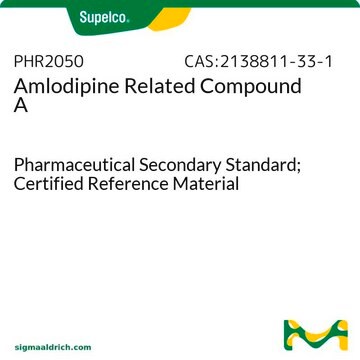PHR1212
Anisole
Pharmaceutical Secondary Standard; Certified Reference Material
Synonym(s):
Methoxybenzene, Methyl phenyl ether
About This Item
Recommended Products
grade
certified reference material
pharmaceutical secondary standard
Quality Level
agency
traceable to USP 1037011
vapor density
3.7 (vs air)
vapor pressure
10 mmHg ( 42.2 °C)
CofA
current certificate can be downloaded
autoignition temp.
887 °F
technique(s)
HPLC: suitable
gas chromatography (GC): suitable
refractive index
n20/D 1.516 (lit.)
bp
154 °C (lit.)
mp
−37 °C (lit.)
density
0.995 g/mL at 25 °C (lit.)
application(s)
pharmaceutical (small molecule)
format
neat
storage temp.
2-30°C
SMILES string
COc1ccccc1
InChI
1S/C7H8O/c1-8-7-5-3-2-4-6-7/h2-6H,1H3
InChI key
RDOXTESZEPMUJZ-UHFFFAOYSA-N
Looking for similar products? Visit Product Comparison Guide
General description
Application
Other Notes
Footnote
signalword
Warning
hcodes
Hazard Classifications
Flam. Liq. 3 - STOT SE 3
target_organs
Central nervous system
Storage Class
3 - Flammable liquids
wgk_germany
WGK 2
flash_point_f
109.4 °F - closed cup
flash_point_c
43 °C - closed cup
Choose from one of the most recent versions:
Certificates of Analysis (COA)
Don't see the Right Version?
If you require a particular version, you can look up a specific certificate by the Lot or Batch number.
Already Own This Product?
Find documentation for the products that you have recently purchased in the Document Library.
Customers Also Viewed
Our team of scientists has experience in all areas of research including Life Science, Material Science, Chemical Synthesis, Chromatography, Analytical and many others.
Contact Technical Service









